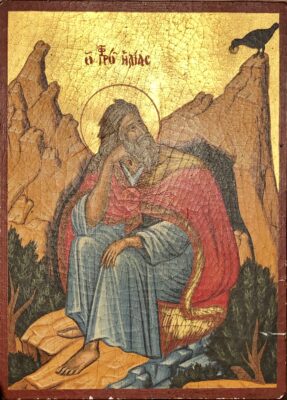 Something very funny just happened. Well, funny and infuriating.
Something very funny just happened. Well, funny and infuriating.
At the end of writing a short-form essay for today’s Daily Sip – this essay- my computer powered down and I lost the entire article I had just spent two hours researching and writing…on my birthday…without a scotch or cake. And do you know what the topic had been – the one I had chosen for this aforementioned lost article? The one that, when I powered up my computer, was erased by the power failure? “Disappointment.”
That’s right. My hard-won article on disappointment was gone. Vanished. Not in my computer. I had not had time to save it when I lost power. I mean SERIOUSLY!?
So there I was, deeply disappointed, having just lost my wonderful article (late to the publisher for your reading pleasure) on the subject of “disappointment.” Titled “Disappointment.” Seriously. The irony.
Were I the kind of person who believed in the Celtic tradition of wee Faeries who live under mushrooms, wearing chiffon, and who run around doing mischief (which I AM!) I would be ready to do all the things that I had so sanctimoniously said were wrong in the recently-lost article…get mad, react, spiral into a bad mood. (I yelled at my puppy for barking at a dog while I was having a tantrum. I did. Bad karma.)
One of my pet peeves is preachers and writers who tell you about HOW they wrote their sermon rather than just (for God’s sake!) preaching it so that I can get to Brunch like any self-respecting Episcopalian. But no! I am telling you this story because God, or the gods, or the sh*tty little faerie that hid my apparently-missing-power-cord, was teaching me a valuable lesson on disappointment by disappointing me. AND I DO NOT APPRECIATE THE LESSON TODAY.
Blessed be those who have crossed your life
With dark gifts of hurt and loss
That have helped to school your mind
In the art of disappointment.
John O’Donohue
This was the blessing with which I began my lost article. I know…the irony runs like milk and honey from a rock. A rock against which I am banging my head and fists. (And yes, before you ask, I just clicked “save” – thank you!)
There is a lot of disappointment in the air these days. Riots. Political conventions. Shrinking church budgets. Empty pews. Ruined vacations. Birthdays ruined by a powered-down computer. (Did I mention that by the way?)
Having my mind schooled in the art of disappointment is fine. Really. Just not when I am trying to write an article on disappointment. That is late.
And yet, seriously, how perfect, really! I guess I could have reconstructed the article I lost but that would have been to dismiss the new and sort of hilarious opportunity in front of me. To reconsider my response. To wonder if that simply was not the article the world needed. To consider the possibility that the wee Faerie who was messing with me (Whidbey Island is full of them!) may have been trying to help.
John O’Donohue, my spiritual and writing hero, calls hurt and loss “dark gifts.” And I find that intriguing. In order to metabolize disappointment, we need resilience and what psychologists tell us about resilience is that it is like a muscle. It gets stronger as you use it – as you lift heavier and heavier things. And what we know about muscles is that the lifting rips their fibers – and the ripped fibers are what, when healed, build more muscle.
As I experience the church these days, my response is similar to my experience of politics. They are similar because their common denominator is that we humans avoid feeling disappointment by grabbing some form of anesthesia to dull the pain rather than feeling it; learning from it.
One of my favorite spiritual directors once called life “Jesus’ little school.” And the reality of that truth has never left me. We will continue to feel the pain until we learn the lessons. And based on what I see on the news and in the church and on the planet’s ecological surface, life even has its schoolyards and its bullies.
Much ink has been spilled on vellum, parchment and paper over the centuries about “the church mothers and fathers.” They left the cities and went to live in remote caves. They grew in wisdom by living an un-anesthetized life. They felt the pain. And that made them attractive enough for people to go find them, asking a bazillion questions. Which only made the “church mothers and fathers” leave their caves and find ones deeper in the wilderness, harder to get to…islands for example…
Perhaps these “Church Mothers and Fathers” were super-christians, mystics, full of courage doing without conveniences like dishwashers, Costco rotisserie chickens and post-it-notes. Or, as I suspect, they were really just pissed-off people trying to avoid other people. Disappointed perhaps, by life. I know…”don’t mess with our hagiography!” Ok. Ok.
May our minds feel our pain. May we set down our anesthesia – the drink, the drugs, the catalogues, the accusations, the porn, the Costco runs, the internet-surfing, the online liturgies. And may we simply feel our pain. May we rip the muscles of our resilience, feeling, in turn THAT pain. And may we quiet the classroom of life such that we learn what the dark gifts of hurt and loss have to teach us. Perhaps if we feel our pain more, we will inflict it on others less.
(Image: The Icon of Elijah in his Cave, Mount Athos, Greece, 2000, Private Collection of the author.)
Charles LaFond is an author, novelist, potter, and fundraiser who lives in a glass cave on a cliff on an island in the Salish Sea.

